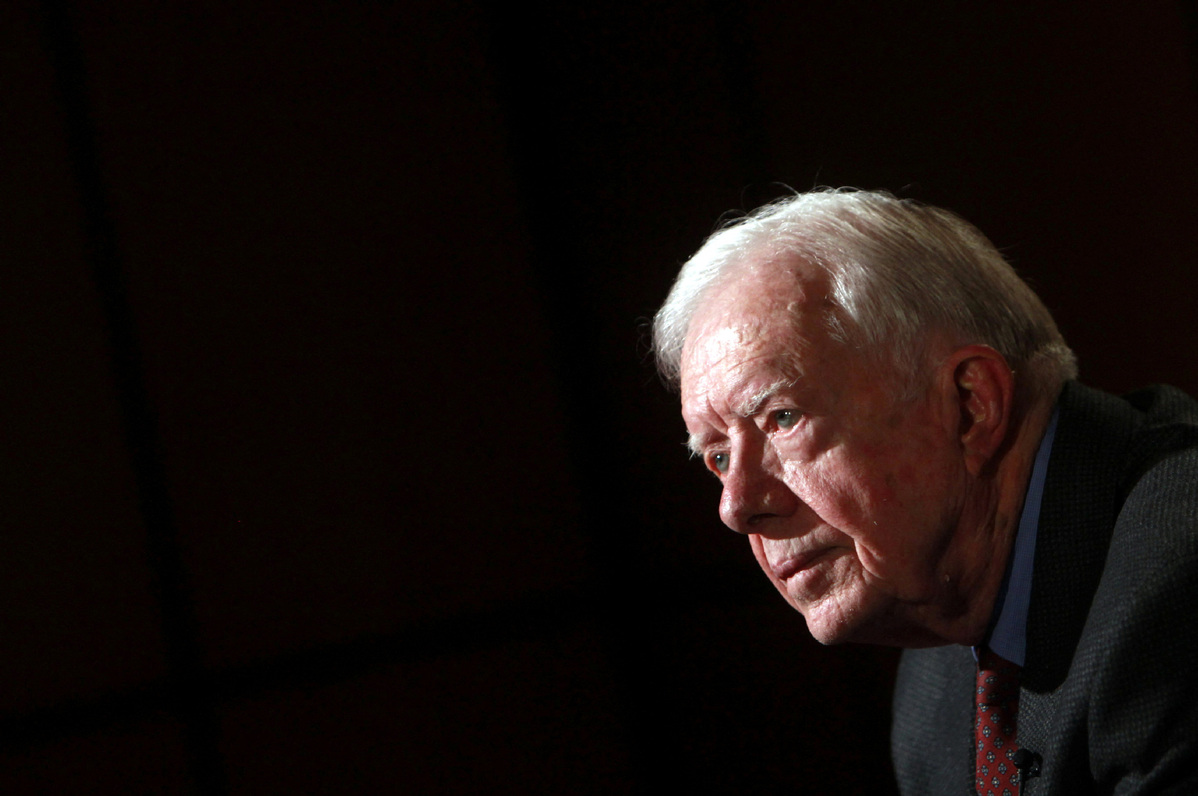Passing of Jimmy Carter: The end of an era


The passing of Jimmy Carter, the 39th president of the United States, signifies more than just the passing of an American president. It defines the end of an era. An era of decency in American politics which may already be long gone. Moreover, the end of an era in which China-US relations were built on principles of positive pragmatic collaboration rather than posturing over political ideologies.
I remember in the turbulent 1970s campaigning for Jimmy Carter's presidential campaign as a student volunteer. The Vietnam War had just ended and we were looking for another way for the country to redefine itself and move forward. The euphoria of Carter's election was a moment of hope. A simple peanut farmer from Georgia would now lead the country. It was Abraham Lincoln all over again, or so we thought. The euphoria was overwhelming. Yes, once again America would be led by a man of the people, not one trying to control and manipulate them. At least that was our hope as youthful first-time voters. Sure enough within just a few years, in 1979 under Carter's administration we finally, had formalization of China-US relations. It was another eureka moment of incredible hope that after a useless and tiring Cold War, these two great nations would finally join hands, and do great things.
Totally committed to the hope that the future presented, in 1981, I arrived in China among the very first wave of American students to learn Chinese, and hopefully make a difference by being a part of this new beginning. Throughout the 1980s and 1990s, working as a "China Trade Lawyer" (that's what they called us in those days). I negotiated one joint venture after another, seeing Chinese enterprises benefiting from the technology and efficiency brought by foreign investments, and American corporations benefiting from the global cost reductions of manufacturing in China and accessing this vast market. It was all positive, win-win as we like to say.
As government advisor, I worked with China's policy makers on transformational economic programs from State-owned enterprise reforms in the 1990s to transform Chinese enterprises into multinational corporations. I worked on the committee drafting ecological civilization, China's national environmental policy framework that will propel China into being the only country in the world to achieve the United Nations 2030 SDGs (sustainable development goals). Fast forward to the present with China no longer the factory of the world but the investment bank, I worked on policies to advance the globalization of the Yuan as an alternative clearing and reserve currency. In short, so much can be done with positive energy and focus on constructively solving problems, not only bilaterally, but for all.
Looking back on Jimmy Carter and the establishment of China-US relations, I must say there were a lot of us who believed and are committed to this relationship. Where is everyone now? Why do we have only a handful of American university exchange students in China today when there once were so many? Why is there such little, if any, dialogue between these two great nations and why so little that is constructive and so much left posturing around ideological differences? Where is the pragmatism and foresight of that era when Jimmy Carter was president, waves of American students flowed to China and Chinese to America all so anxious to learn from each other and create a better world for all of us rather than fall back upon the dark shadows of the Vietnam conflict and the Cold War ideology that created it.
With the passing of former US president Jimmy Carter, this should be a moment of mourning for both sides. More importantly, it should be a moment of introspection. Looking at the current state of relations, asking a single question: what happened?
The author is a US documentary filmmaker and a senior international fellow at the Center for China and Globalization. The views don't necessarily reflect those of China Daily.
If you have a specific expertise, or would like to share your thought about our stories, then send us your writings at opinion@chinadaily.com.cn, and comment@chinadaily.com.cn.


































